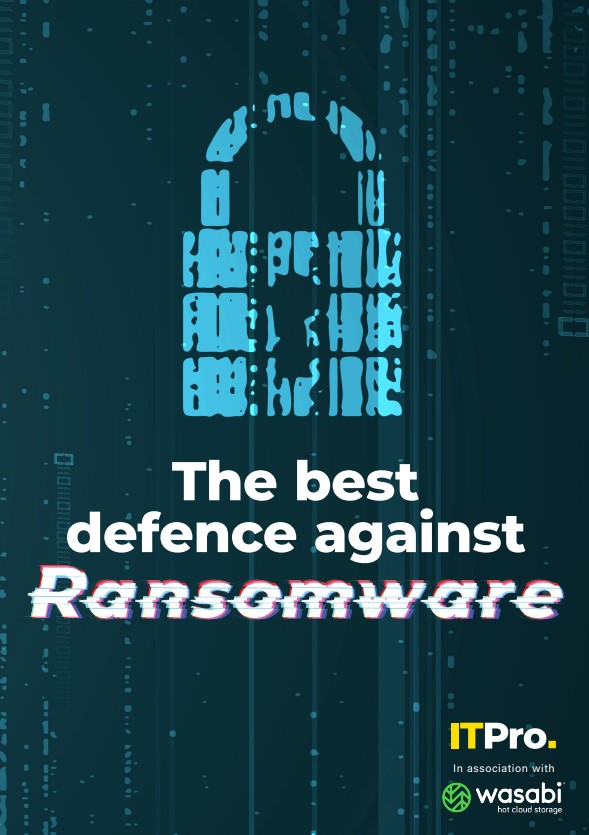Senator to introduce new bill to force ransomware payment disclosures
Organizations would have 48 hours to inform DHS


Democratic senators will introduce legislation requiring ransomware victims to notify the Department of Homeland Security (DHS) within 48 hours of payment.
The Ransom Disclosure Act, introduced by Senator Elizabeth Warren and Representative Deborah Ross, would also force organizations to disclose the amount of ransom demanded and paid, the type of currency used for the ransom payment, and any known information about the entity demanding the ransom.
It would also require DHS to make public the information disclosed during the previous year, excluding identifying information about the entities that paid ransoms, and establish a website through which individuals can voluntarily report ransom payments.
Warren said that while ransomware attacks were “skyrocketing” there was a lack of critical data to go after cyber criminals.
“My bill with Congresswoman Ross would set disclosure requirements when ransoms are paid and allow us to learn how much money cybercriminals are siphoning from American entities to finance criminal enterprises -- and help us go after them,” she said.
The bill would also support a study on commonalities among ransomware attacks and the extent to which cryptocurrency facilitated these attacks and provide recommendations for protecting information systems and strengthening cybersecurity.
Ross added the US cannot continue to fight ransomware attacks with “one hand tied behind our back.”
Get the ITPro daily newsletter
Sign up today and you will receive a free copy of our Future Focus 2025 report - the leading guidance on AI, cybersecurity and other IT challenges as per 700+ senior executives
“The data that this legislation provides will ensure both the federal government and private sector are equipped to combat the threats that cybercriminals pose to our nation,” she said.
Callum Roman, Head of Threat Intelligence at F-Secure, told ITPro that governments know ransomware is a problem — just how much of a problem is unclear.
RELATED RESOURCE

The best defence against ransomware
How ransomware is evolving and how to defend against it
“Compulsory reporting of ransomware payments could help shed light on the true scale of the problem and not just the tip of the iceberg we see reported in the media,” he said.
Roman added that the legislation may run into issues on reporting based on how and where organizations decide to pay the ransom. If they organize payment through an intermediary, will they have to report? If they pay the ransom from a company in their portfolio that is not under US jurisdiction (aka abroad), will they have to declare?
“There will always be ways round this type of legislation, but if constructed well, it can have a positive impact on informing the government of the real scope of the issue,” he added.
The most interesting aspect of the suggested legislation is the directive to the DHS to investigate the cryptocurrency facilitation of ransomware, according to Roman.” This may spark further legislation and focus on this medium by the US government. It certainly will help arm it with the information it needs to decide if this is an effective avenue for combating ransomware,” he said.
Rene Millman is a freelance writer and broadcaster who covers cybersecurity, AI, IoT, and the cloud. He also works as a contributing analyst at GigaOm and has previously worked as an analyst for Gartner covering the infrastructure market. He has made numerous television appearances to give his views and expertise on technology trends and companies that affect and shape our lives. You can follow Rene Millman on Twitter.
-
 Bigger salaries, more burnout: Is the CISO role in crisis?
Bigger salaries, more burnout: Is the CISO role in crisis?In-depth CISOs are more stressed than ever before – but why is this and what can be done?
By Kate O'Flaherty Published
-
 Cheap cyber crime kits can be bought on the dark web for less than $25
Cheap cyber crime kits can be bought on the dark web for less than $25News Research from NordVPN shows phishing kits are now widely available on the dark web and via messaging apps like Telegram, and are often selling for less than $25.
By Emma Woollacott Published
-
 ‘Phishing kits are a force multiplier': Cheap cyber crime kits can be bought on the dark web for less than $25 – and experts warn it’s lowering the barrier of entry for amateur hackers
‘Phishing kits are a force multiplier': Cheap cyber crime kits can be bought on the dark web for less than $25 – and experts warn it’s lowering the barrier of entry for amateur hackersNews Research from NordVPN shows phishing kits are now widely available on the dark web and via messaging apps like Telegram, and are often selling for less than $25.
By Emma Woollacott Published
-
 Healthcare systems are rife with exploits — and ransomware gangs have noticed
Healthcare systems are rife with exploits — and ransomware gangs have noticedNews Nearly nine-in-ten healthcare organizations have medical devices that are vulnerable to exploits, and ransomware groups are taking notice.
By Nicole Kobie Published
-
 Alleged LockBit developer extradited to the US
Alleged LockBit developer extradited to the USNews A Russian-Israeli man has been extradited to the US amid accusations of being a key LockBit ransomware developer.
By Emma Woollacott Published
-
 February was the worst month on record for ransomware attacks – and one threat group had a field day
February was the worst month on record for ransomware attacks – and one threat group had a field dayNews February 2025 was the worst month on record for the number of ransomware attacks, according to new research from Bitdefender.
By Emma Woollacott Published
-
 CISA issues warning over Medusa ransomware after 300 victims from critical sectors impacted
CISA issues warning over Medusa ransomware after 300 victims from critical sectors impactedNews The Medusa ransomware as a Service operation compromised twice as many organizations at the start of 2025 compared to 2024
By Solomon Klappholz Published
-
 Warning issued over prolific 'Ghost' ransomware group
Warning issued over prolific 'Ghost' ransomware groupNews The Ghost ransomware group is known to act fast and exploit vulnerabilities in public-facing appliances
By Solomon Klappholz Published
-
 The Zservers takedown is another big win for law enforcement
The Zservers takedown is another big win for law enforcementNews LockBit has been dealt another blow by law enforcement after Dutch police took 127 of its servers offline
By Solomon Klappholz Published
-
 There’s a new ransomware player on the scene: the ‘BlackLock’ group has become one of the most prolific operators in the cyber crime industry – and researchers warn it’s only going to get worse for potential victims
There’s a new ransomware player on the scene: the ‘BlackLock’ group has become one of the most prolific operators in the cyber crime industry – and researchers warn it’s only going to get worse for potential victimsNews Security experts have warned the BlackLock group could become the most active ransomware operator in 2025
By Solomon Klappholz Published